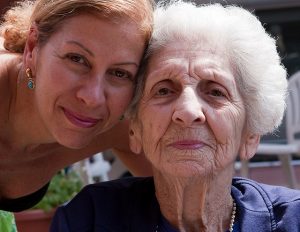Caregiver Tips: Planning for Long-Term Cancer Care
Caregivers for long-term cancer care
Long-term cancer care supports cancer patients throughout their treatment journey. Patients diagnosed with cancer may choose a friend or family member as their cancer caregiver. When taking on the role of caregiver, make sure to understand how to best assist them. Here are some tips below to help get you started.
Tip 1: Understand the diagnosis of your cancer patient and how it affects them
Aggressive Cancers
Being a cancer caregiver opens up new responsibilities and challenges. There are many types of caregiving that provide help for the general health and wellbeing of patients. With cancer caregiving, patients often require specialized help. You may be familiar with senior or disability caregiving, but certain cancers are more difficult to manage. For example, breast cancer is common but involves a different caregiving approach than mesothelioma cancer. Mesothelioma is an aggressive cancer of the lungs that typically targets older adults.
There is currently no available cure for mesothelioma. This results in a 79 percent, 1-year survival rate, even with multimodal treatment—which combines one or two cancer treatments. Cancer patients and caregivers may have many questions surrounding treatment. For this reason, caregiver resources help plan and ease long-term mesothelioma cancer care. Take time to understand the type of cancer your patient has and how mesothelioma will affect them physically, mentally, and socially. The decision to have long-term cancer care is hard on the patient, too. Caregivers relieve some of the burdens patients will have. With this in mind, preparing for your patients will help you fully grasp this role.
It’s also crucial to work with the doctors and cancer teams to provide quality care. Depending on what type of caregiver you are, your responsibilities could change. More qualified caregivers may have to administer medications. Connecting with the doctor will help the cancer team with their prognosis strategy and your patient’s long-term cancer care. This will also help you better understand the patient’s needs.
Tip 2: Keep the patient, family and friends involved
It can be devastating when a loved one is diagnosed with cancer. Putting in the effort to work with your patient and their family will make them feel included and comfortable during this difficult time. Caregivers spend a lot of time with patients. By creating healthy relationships with them, you can give them the support and encouragement they need. Often, treatment is hard on patients and takes long recovery times. You will be one of their biggest advocates.
Tip 3: Pay attention to how you feel
Amidst the distress you and your patient will undergo, it’s vital to check in on yourself. It may seem as though your feelings aren’t as valid as those you are helping, but that isn’t the case. You won’t be able to fully care for your patient if you’re not caring for yourself as well. To avoid burnout, dedicate time for yourself to process your emotions and feelings, especially because of how draining long-term cancer caregiving can be.
If you are taking a cancer caregiver position, keep these tips in mind. Caregiving is not babysitting. Patients and their families rely on caregivers to handle what they cannot. Taking on this role is both an immense commitment and a privilege.





